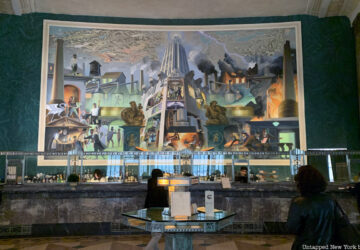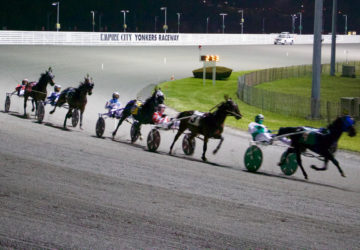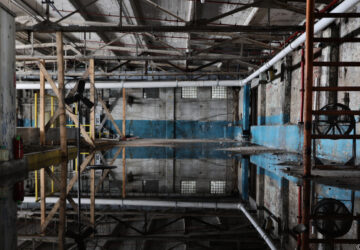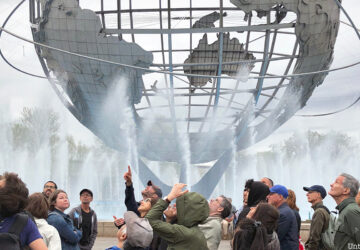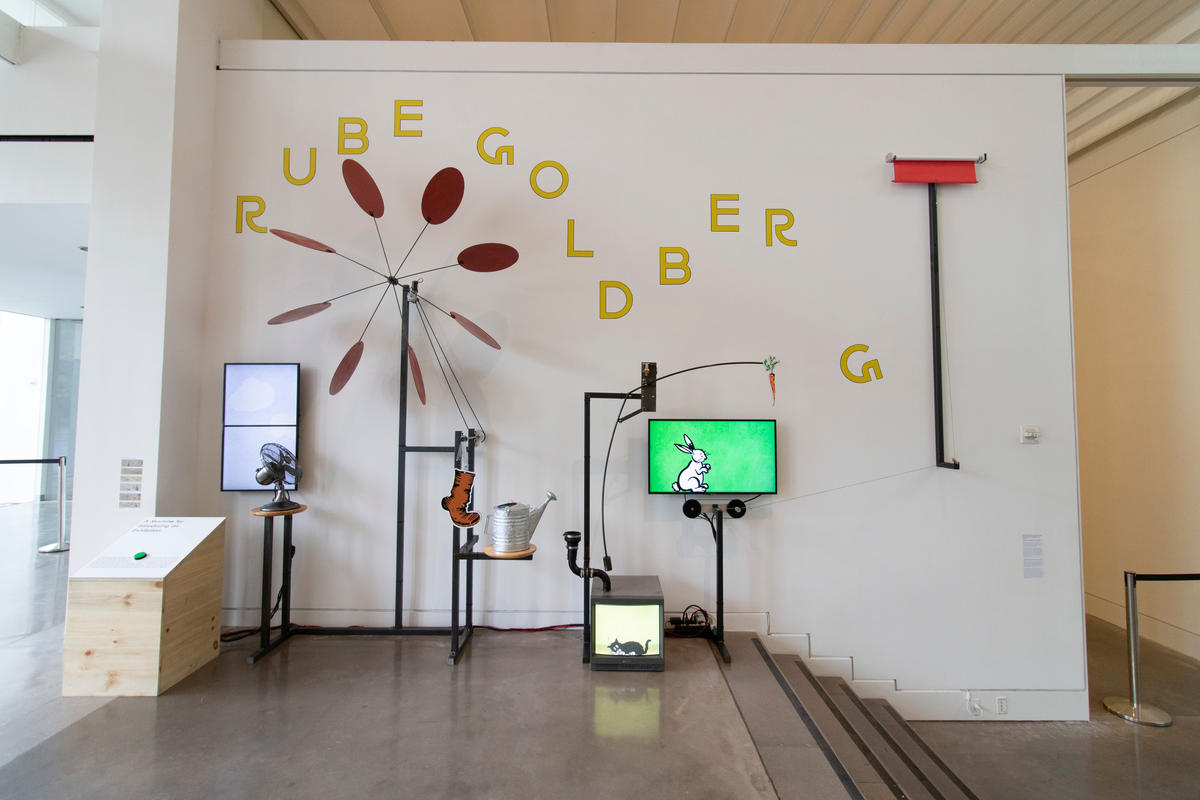Even if you don’t know his name, you have likely seen a Rube Goldberg machine in a television commercial, cartoon or movie. The complicated mechanical systems are often made of everyday items cobbled together to make a contraption that completes an otherwise simple task. These machines first appeared in Goldberg’s comic invention drawings and have inspired countless imaginations since. In a new exhibit at the Queens Museum, The Art of Rube Goldberg, visitors can see 100 never-before-exhibited works of art from Goldberg’s prolific 72-year long career. Untapped Cities got to explore the exhibition with Jennifer George, Rube Goldberg’s granddaughter, who says that much of the collection was stored in her parent’s garage and under her bed, before being restored and put together for this travelling exhibition.
Rube Goldberg started drawing when he was just twelve years old and continued to make art until the end of his life. The exhibition starts with one of Goldberg’s first drawings, an ink and paper portrait titled The Old Violinist. Throughout his life, Goldberg would create more than 50,000 drawings. Despite an early interest in and demonstrated talent for the arts, Goldberg studied to be an engineer. After this official schooling, he honed his drawing and humor at a job at the San Francisco Bulletin in his home state of California. He came to New York City, what he dubbed “the first row,” as a young man in 1907 and settled here for the rest of his life.
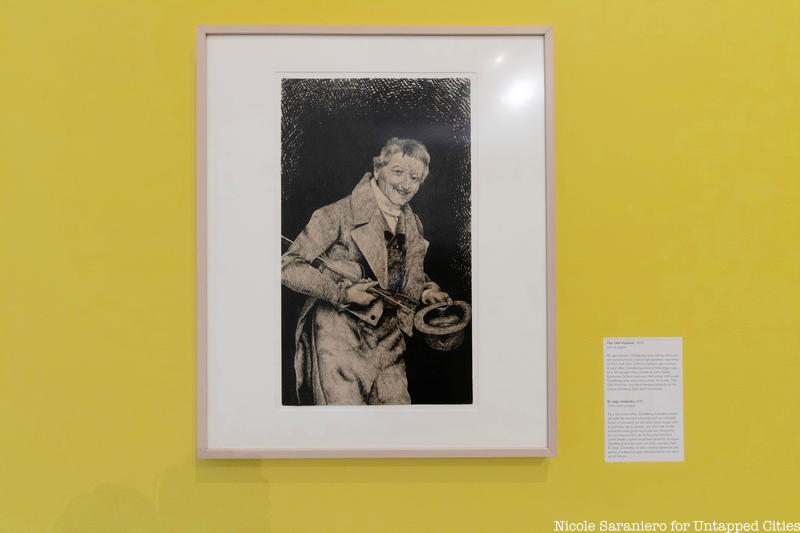
In New York, Goldberg gathered more material and sharpened his skill for satire by working as a stand-up comedian and a fortune-teller in Vaudeville shows. The slapstick comedic style of Vaudeville greatly influenced his own brand of humor. Goldberg’s first big break was with Foolish Questions in 1908. The cartoon in the Evening Mail was based on the phrase, “Ask a stupid question, get an even stupider answer.” He became a household name in the early 1920s when his work went into syndication and garnered national newspaper distribution.
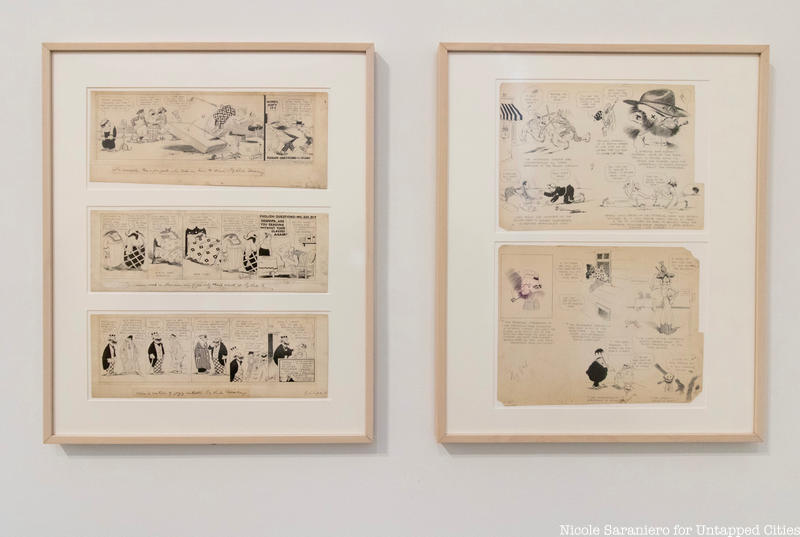
The comic strips that made Goldberg famous, from Foolish Questions to Boob McNutt, are all represented in the exhibition, as are his famous invention drawings. Goldberg described these drawings as “a symbol of man’s capacity for exerting maximum effort to achieve minimal results.” These drawings had a significant impact on popular culture at the time and in the decades that followed. Traces of Goldberg’s humor and zany inventions are found in Charlie Chaplin movies, The Three Stooges, and iconic movies like The Goonies, Home Alone and Back to the Future.
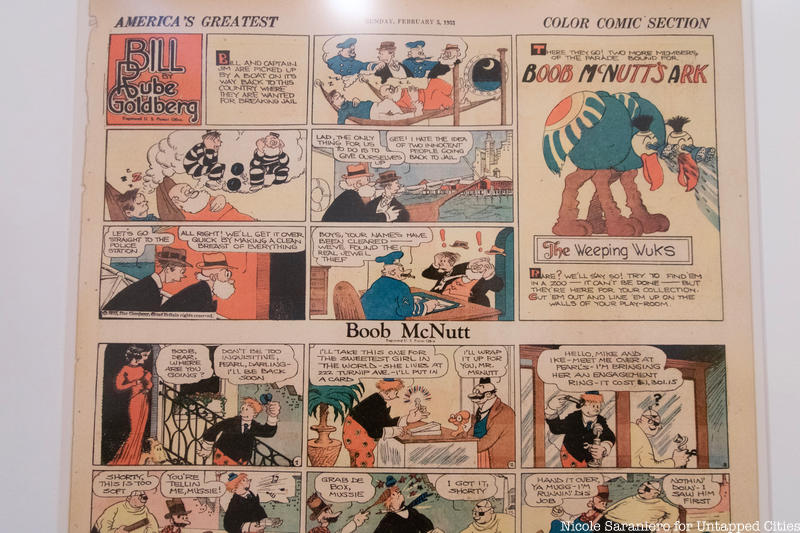
A sweet section of the exhibition shows a piece of paper with drawings done by Goldberg and his granddaughter alongside a photo of the pair. Jennifer George, Goldberg’s granddaughter, reminisced about how she would sit with her grandfather and he would draw something for her to copy. George took up the charge of caring for her grandfather’s collection when her father, Goldberg’s son, died. Her father was in the process of creating a coffee table book which she completed. The book, The Art of Rube Goldberg, contains seventy-five original drawings and sketches.
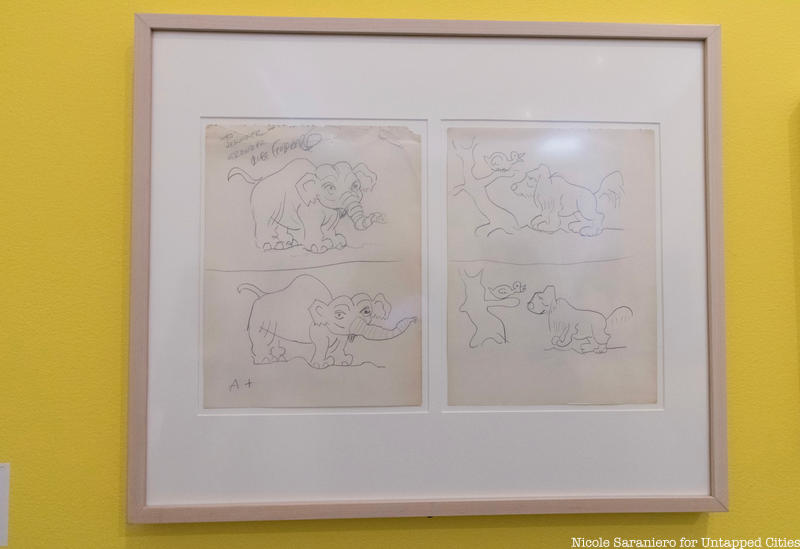
Along with Goldberg’s drawings, the exhibition shows his enduring legacy through ephemera and video stations screening movie scenes and interviews. Some of the items on display include a commemorative stamp from 1995, and advertisements for products like Pepsi that used his drawings.
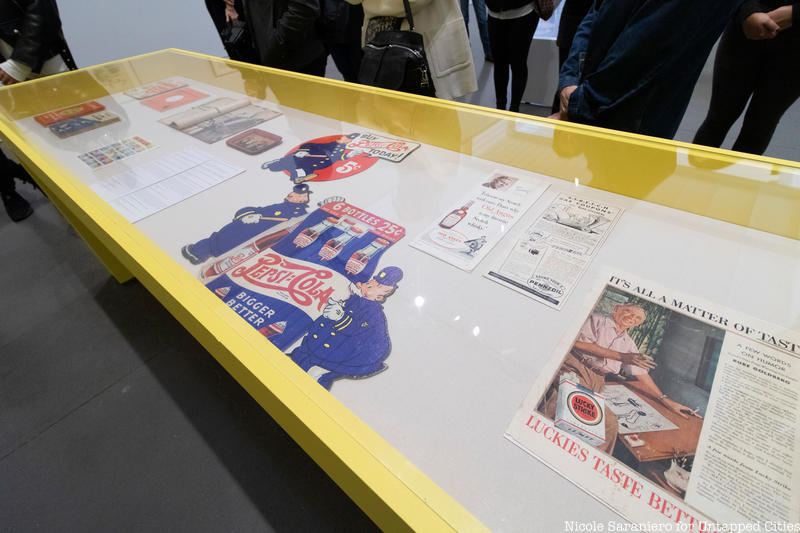
The most fun and playful part of the exhibition is an interactive Rube Goldberg machine created by Partner & Partners with Greg Mihalko, Stephan von Meuhlen, and Ben Cohen. The invention is made up of physical items like a fan and watering can, and video animations of animals. The colorful and complicated piece pays homage to Goldberg’s unique sense of humor and inventiveness.
You can check out the Rube Goldberg exhibition at the Queens Museum now through February 9th.
Next, check out Sit on a Pile of Jeans in New Interactive Queens Museum Exhibit
